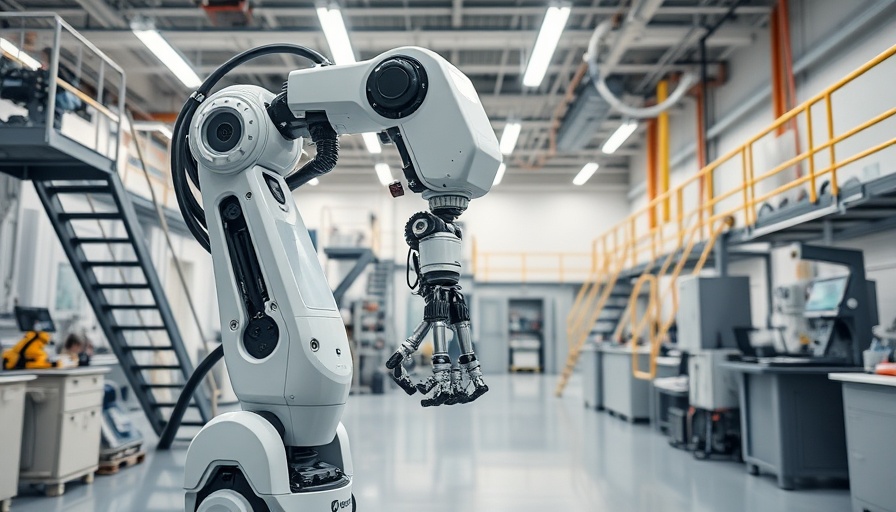
Meta's Rising Star Faces Growing Pains with AI Tool Vy
In an era where artificial intelligence promises to transform the way we work and interact with technology, Meta’s newest whiz kid Matt Deitke is facing criticism for his latest AI offering, known as Vy. Despite earning a jaw-dropping $250 million from Meta, users have expressed their dissatisfaction with Vy’s performance across various applications, particularly in Google Chrome.
Deitke, a 24-year-old who departed from his PhD program to join Meta, has seen user feedback cast a shadow over his ambitious project. Vy is designed to automate tedious tasks by learning user behavior and executing commands directly on their computers. While some users appreciate its potential to handle specific tasks, others find it less reliable than expected. For instance, SEO expert Julian Goldie claimed, "It sucks at Google Chrome, flopped with Numbers, but it’s magic with ChatGPT, Pages, and Descript.” This mixed reception raises questions about the viability of AI tools in everyday applications.
The Promise of AI and the Reality of User Experience
Goldie's critique illustrates a broader challenge facing AI technologies: the gap between hype and practical utility. Users across forums have echoed similar frustrations, pointing out that while Vy shows impressive capabilities in managing workflows, it falters in more widely used applications. One Reddit user noted it was “clunky,” stating, “I’ve tried a bunch of stuff; some tasks it handles well, others still feel a bit clunky.” This dichotomy between success and failure reveals the roadblocks that AI developers must overcome to create tools that deliver consistently across different platforms.
Comparing Vy to Early Tech Innovations
Interestingly, Goldie likened Vy’s current standing to that of the first iPhone—an innovative device that faced its own set of criticisms before becoming a mobile industry standard. Early adopters of the iPhone complained about functionality, battery issues, and app availability, yet the potential of the device shone through as developers adapted. If Vy can capture user insights and evolve similarly, it may find its footing in the market.
Challenges and Opportunities for Meta's AI Ambitions
Deitke's shift from his startup, Vercept, largely funded to propel Vy forward, highlights the competitive landscape for new tech ideas. Vercept raised $16 million but has also faced criticism regarding the utility of Vy, with users struggling to maximize its capabilities. Glitches on the Vercept website have further fueled user frustration, citing issues such as difficulties in signing up for the Vy waitlist. One user tweeted, "Your site won’t let us join the waitlist. You shouldn’t make it so hard to follow you.” Such technical hitches reflect the growing pains of a product trying to carve its place in a crowded market.
Future Predictions: Is Vy Doomed or Will It Thrive?
As expectations mount for Vy’s performance, questions arise about its future. Can it evolve into a trustworthy assistant for everyday tasks? Or will it remain a novelty that fails to live up to the significant investment? The key may lie in feedback from users like Goldie, whose insights could inform the adjustments needed for Vy to genuinely enhance productivity. If Meta can address current functionality complaints and focus on delivering seamless performance, there’s potential for Vy to truly shine.
Final Thoughts: The Impact of Satisfied Users
The user experience is critical in the tech industry—products that fail to satisfy can result in disillusionments and missed opportunities, particularly in the competitive space of AI. As Deitke and his team work to improve Vy, users need to see practical benefits for the technology to gain traction. For those skeptical of AI tools, their future success will likely hinge on collaboration with users who provide essential feedback to sharpen and refine the technology.
In the ever-changing landscape of artificial intelligence, tools like Vy hold promise, but only if they deliver on their assurances. It remains to be seen whether Meta’s investment in Deitke will lead to groundbreaking advancements or if the criticisms will overshadow the potential benefits. With adept handling of current limitations and a focus on user satisfaction, Vy could prove to be much more than a “whiz kid” project—it could redefine how we interact with technology.
Have a story to share or want to contact us for more details? Drop us an email at team@kansascitythrive.com
 Add Row
Add Row  Add
Add 





Write A Comment